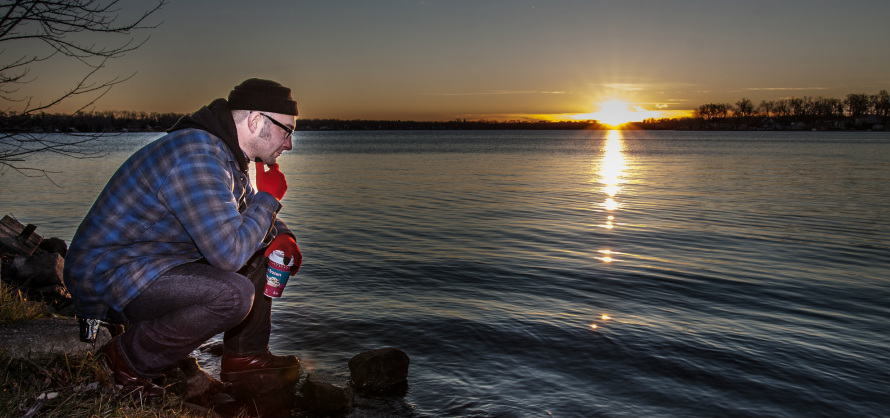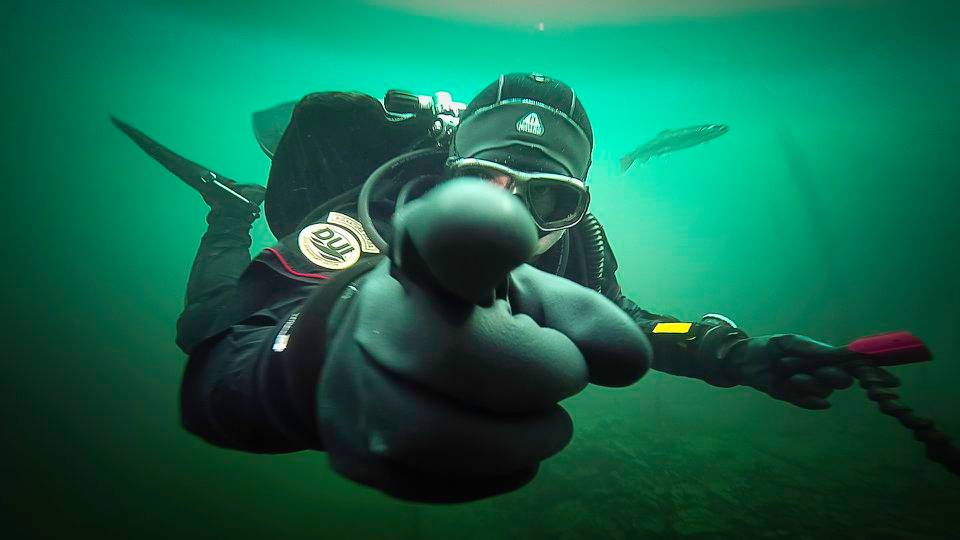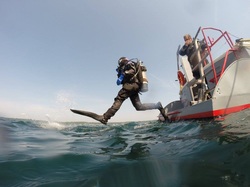
It is not necessarily about an agency.
I am a PADI Master Scuba Diver Trainer and a founding instructor for Unified Team Diving, International. You can contact me regarding Certification Cards and what logo you need to show to get on a dive boat. In my opinion this has nothing to do with becoming a diver.
The costs of scuba training are fairly similar anywhere you go. Variables such as pool availability, location and time are all going to have an effect on the cost of the class. When you find an instructor that energizes your fascination with diving you will justify these expenses to get the experience you desire. Please take the time to contact me in word or text to discuss price.
I am a PADI Master Scuba Diver Trainer and a founding instructor for Unified Team Diving, International. You can contact me regarding Certification Cards and what logo you need to show to get on a dive boat. In my opinion this has nothing to do with becoming a diver.
The costs of scuba training are fairly similar anywhere you go. Variables such as pool availability, location and time are all going to have an effect on the cost of the class. When you find an instructor that energizes your fascination with diving you will justify these expenses to get the experience you desire. Please take the time to contact me in word or text to discuss price.
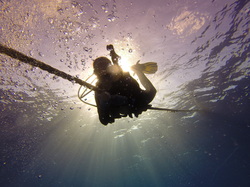
Open Water Diver/ Recreational 1
This is where you start if you are not a certified scuba diver. It is the traditional beginner class where you read and study academics, learn skills in a pool setting and then test and apply them in the open water. All scuba classes, regardless of training agency, will teach you how to clear water out of your mask, how to share air in an emergency, etc. that is the purpose of this level. My experience in this industry has shown that most people are rushed through this stage. Although they exit with a recognized certification card and the necessary knowledge to not "die in the pool" they are hardly competent divers. This is why there is an enormous curriculum of specialty education available from most agencies, some of which is justified however most is nonsensical.
The Logical Diving Solutions philosophy focuses on the building blocks of education. (See blog, "Becoming Part of the Underwater World") Instead of immediately learning underwater skills you will first learn to fully adapt to this new environment. Relearning how to breathe and how to move will set up the foundation for your diving education. After you are comfortable with breathing and buoyancy, we will then explore the skills necessary to become a certified diver.
Advanced Open Water/ Recreational 2
This is generally the second class for a new diver. Although a good entry-level course should prepare you to do most recreational diving there are some obvious limitations. The Recreational 1/ Open Water level allows you to get out on your own and start building experience without your instructor watching over your every move. This experience building should be within the limitations set by your training level. Eventually you will want to explore more stressful environments like deeper water, at night or in darker water where you can't see directly to the surface. Advanced classes will give you the additional education and reduce the learning curve of gaining comfort and ability in more advanced environments.
Deep Diver/Recreational 3
It is at this level where new divers are questioned with how deep they want to get into diving. The training up to now has covered most of the physical skills of learning to dive and now we are running into physiological limitations of time limits. These limitations are controlled by the amount of gas a diver can carry in one single tank as well as the decompression obligations of breathing underwater and how long we need stage our ascent to get out of the water safely. The Recreational 3 level provides you with the training and certification to play in these deeper depths that are the maximum limits for the recreational diver and it also introduces the new diver to the possibilities of continuing beyond the recreational diver level and into the realm of technical diving.
This is where you start if you are not a certified scuba diver. It is the traditional beginner class where you read and study academics, learn skills in a pool setting and then test and apply them in the open water. All scuba classes, regardless of training agency, will teach you how to clear water out of your mask, how to share air in an emergency, etc. that is the purpose of this level. My experience in this industry has shown that most people are rushed through this stage. Although they exit with a recognized certification card and the necessary knowledge to not "die in the pool" they are hardly competent divers. This is why there is an enormous curriculum of specialty education available from most agencies, some of which is justified however most is nonsensical.
The Logical Diving Solutions philosophy focuses on the building blocks of education. (See blog, "Becoming Part of the Underwater World") Instead of immediately learning underwater skills you will first learn to fully adapt to this new environment. Relearning how to breathe and how to move will set up the foundation for your diving education. After you are comfortable with breathing and buoyancy, we will then explore the skills necessary to become a certified diver.
Advanced Open Water/ Recreational 2
This is generally the second class for a new diver. Although a good entry-level course should prepare you to do most recreational diving there are some obvious limitations. The Recreational 1/ Open Water level allows you to get out on your own and start building experience without your instructor watching over your every move. This experience building should be within the limitations set by your training level. Eventually you will want to explore more stressful environments like deeper water, at night or in darker water where you can't see directly to the surface. Advanced classes will give you the additional education and reduce the learning curve of gaining comfort and ability in more advanced environments.
Deep Diver/Recreational 3
It is at this level where new divers are questioned with how deep they want to get into diving. The training up to now has covered most of the physical skills of learning to dive and now we are running into physiological limitations of time limits. These limitations are controlled by the amount of gas a diver can carry in one single tank as well as the decompression obligations of breathing underwater and how long we need stage our ascent to get out of the water safely. The Recreational 3 level provides you with the training and certification to play in these deeper depths that are the maximum limits for the recreational diver and it also introduces the new diver to the possibilities of continuing beyond the recreational diver level and into the realm of technical diving.
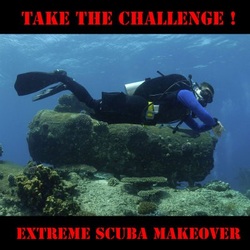
Extreme Scuba Makeover
This is for the already certified diver at any level looking improve and take charge of their buoyancy control. Many divers lack the mastery of buoyancy control underwater. However it is usually not their fault. The overwhelming majority of diver training starts with the student negatively buoyant on the bottom of a pool learning basic skills. This formula virtually guarantees a lifetime of struggle with three-dimensional balance and control of breathing and buoyancy for the new diver because of the subconscious foundation the new diver has developed. The Makeover is designed to completely remodel the divers underwater rudimentary base of breathing, thinking and acting.
This is for the already certified diver at any level looking improve and take charge of their buoyancy control. Many divers lack the mastery of buoyancy control underwater. However it is usually not their fault. The overwhelming majority of diver training starts with the student negatively buoyant on the bottom of a pool learning basic skills. This formula virtually guarantees a lifetime of struggle with three-dimensional balance and control of breathing and buoyancy for the new diver because of the subconscious foundation the new diver has developed. The Makeover is designed to completely remodel the divers underwater rudimentary base of breathing, thinking and acting.
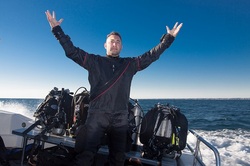
The Essentials
This is where you start if you are already a certified diver and are ready to become more than a basic recreational diver. The Essentials can be done Recreational based or Technical Diver based but either way will give the student a complete and new underwater philosophical base. The Essential of Technical Diving or The Essentials of Recreational Diving is the most complete and comprehensive course in underwater education. Successful completion of it will put the diver on a path to underwater greatness in buoyancy control, balance, trim and body mechanics. It will also develop the minds ability to think, prepare and execute tasks in a disciplined and organized way. The Essentials will immerse the diver in a training program that will allow them to build anything they want to accomplish underwater upon their newly developed skills, equipment configuration as well as awareness and understanding of technical knowledge. The diver can use this to focus their further training in the areas of technical diving, overhead environments or to continue on as a recreational diver with exceptional skill and ability.
Overhead Procedures
Diving on a shipwreck is one of the most surreal experiences you will have in your life. Anyone can become a great storyteller when describing this experience to a non-diver. But there is a big difference between seeing and swimming around a sunken ship and venturing inside of the twisted and torn maze of unstable wreckage. Understanding and working through physical and psychological hazards with a cool and collected mind are essential tools for a diver working in an overhead environment like a wreck or cave. This is were you go after you have completed the Essentials and want to advance this area of underwater expertise.
Wreck Diver
After you have developed the skills of working with a guideline underwater, comfort in limited or no visibility and gas management you will start to apply them in real situations underwater.
Technical Diver
Sometimes your limits that prevent you from reaching the surface are not physical like metal or rock inside of an actual overhead environment but instead they are physiological decompression obligations because of how long you were underwater. Either way, the technical diver has the gas planning, decompression management and team awareness to safely conduct these dives at various depths beyond those of the standard recreational diving limits.
This is where you start if you are already a certified diver and are ready to become more than a basic recreational diver. The Essentials can be done Recreational based or Technical Diver based but either way will give the student a complete and new underwater philosophical base. The Essential of Technical Diving or The Essentials of Recreational Diving is the most complete and comprehensive course in underwater education. Successful completion of it will put the diver on a path to underwater greatness in buoyancy control, balance, trim and body mechanics. It will also develop the minds ability to think, prepare and execute tasks in a disciplined and organized way. The Essentials will immerse the diver in a training program that will allow them to build anything they want to accomplish underwater upon their newly developed skills, equipment configuration as well as awareness and understanding of technical knowledge. The diver can use this to focus their further training in the areas of technical diving, overhead environments or to continue on as a recreational diver with exceptional skill and ability.
Overhead Procedures
Diving on a shipwreck is one of the most surreal experiences you will have in your life. Anyone can become a great storyteller when describing this experience to a non-diver. But there is a big difference between seeing and swimming around a sunken ship and venturing inside of the twisted and torn maze of unstable wreckage. Understanding and working through physical and psychological hazards with a cool and collected mind are essential tools for a diver working in an overhead environment like a wreck or cave. This is were you go after you have completed the Essentials and want to advance this area of underwater expertise.
Wreck Diver
After you have developed the skills of working with a guideline underwater, comfort in limited or no visibility and gas management you will start to apply them in real situations underwater.
Technical Diver
Sometimes your limits that prevent you from reaching the surface are not physical like metal or rock inside of an actual overhead environment but instead they are physiological decompression obligations because of how long you were underwater. Either way, the technical diver has the gas planning, decompression management and team awareness to safely conduct these dives at various depths beyond those of the standard recreational diving limits.
